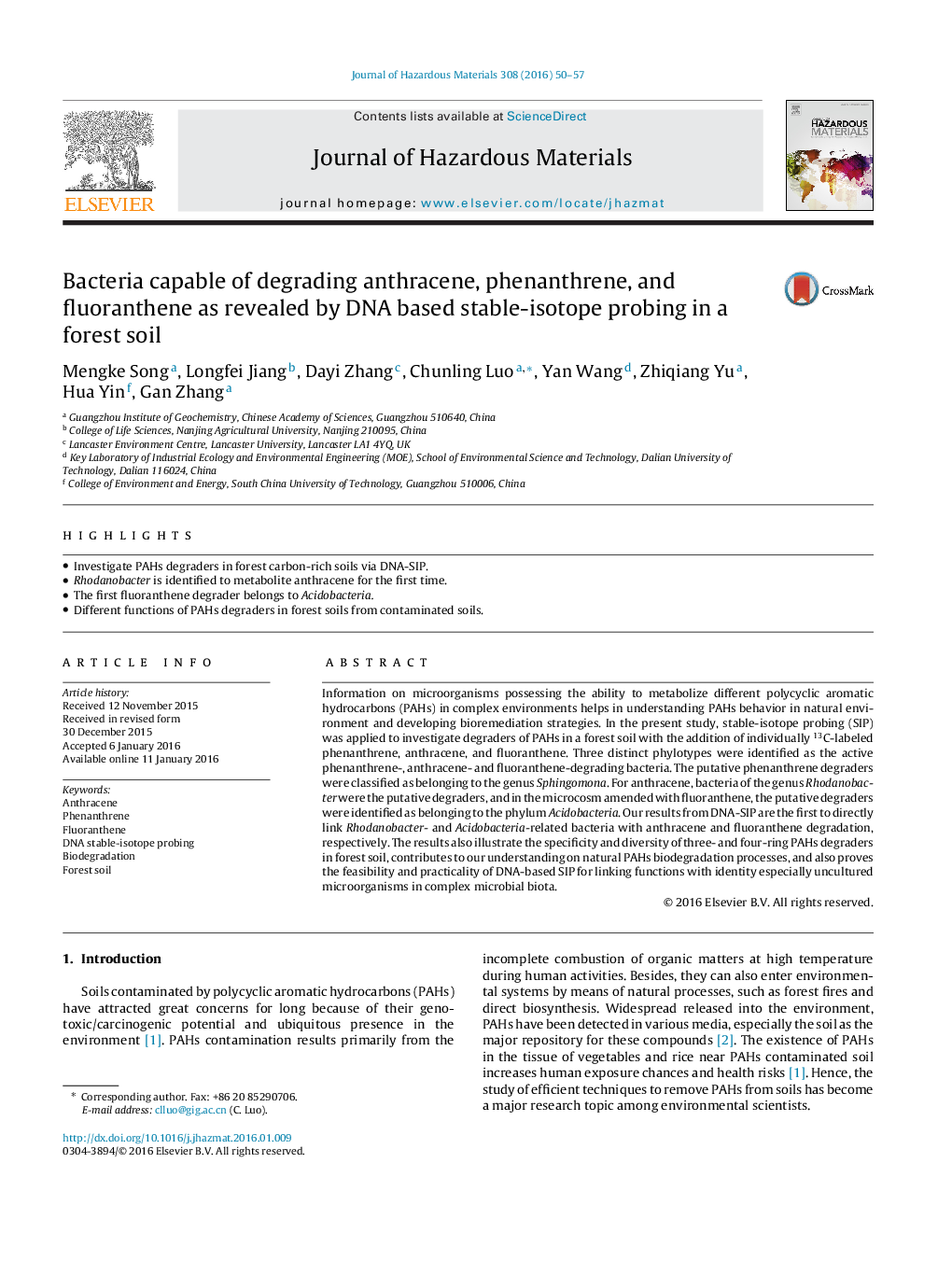| Article ID | Journal | Published Year | Pages | File Type |
|---|---|---|---|---|
| 575407 | Journal of Hazardous Materials | 2016 | 8 Pages |
Abstract
Information on microorganisms possessing the ability to metabolize different polycyclic aromatic hydrocarbons (PAHs) in complex environments helps in understanding PAHs behavior in natural environment and developing bioremediation strategies. In the present study, stable-isotope probing (SIP) was applied to investigate degraders of PAHs in a forest soil with the addition of individually 13C-labeled phenanthrene, anthracene, and fluoranthene. Three distinct phylotypes were identified as the active phenanthrene-, anthracene- and fluoranthene-degrading bacteria. The putative phenanthrene degraders were classified as belonging to the genus Sphingomona. For anthracene, bacteria of the genus Rhodanobacter were the putative degraders, and in the microcosm amended with fluoranthene, the putative degraders were identified as belonging to the phylum Acidobacteria. Our results from DNA-SIP are the first to directly link Rhodanobacter- and Acidobacteria-related bacteria with anthracene and fluoranthene degradation, respectively. The results also illustrate the specificity and diversity of three- and four-ring PAHs degraders in forest soil, contributes to our understanding on natural PAHs biodegradation processes, and also proves the feasibility and practicality of DNA-based SIP for linking functions with identity especially uncultured microorganisms in complex microbial biota.
Related Topics
Physical Sciences and Engineering
Chemical Engineering
Chemical Health and Safety
Authors
Mengke Song, Longfei Jiang, Dayi Zhang, Chunling Luo, Yan Wang, Zhiqiang Yu, Hua Yin, Gan Zhang,
